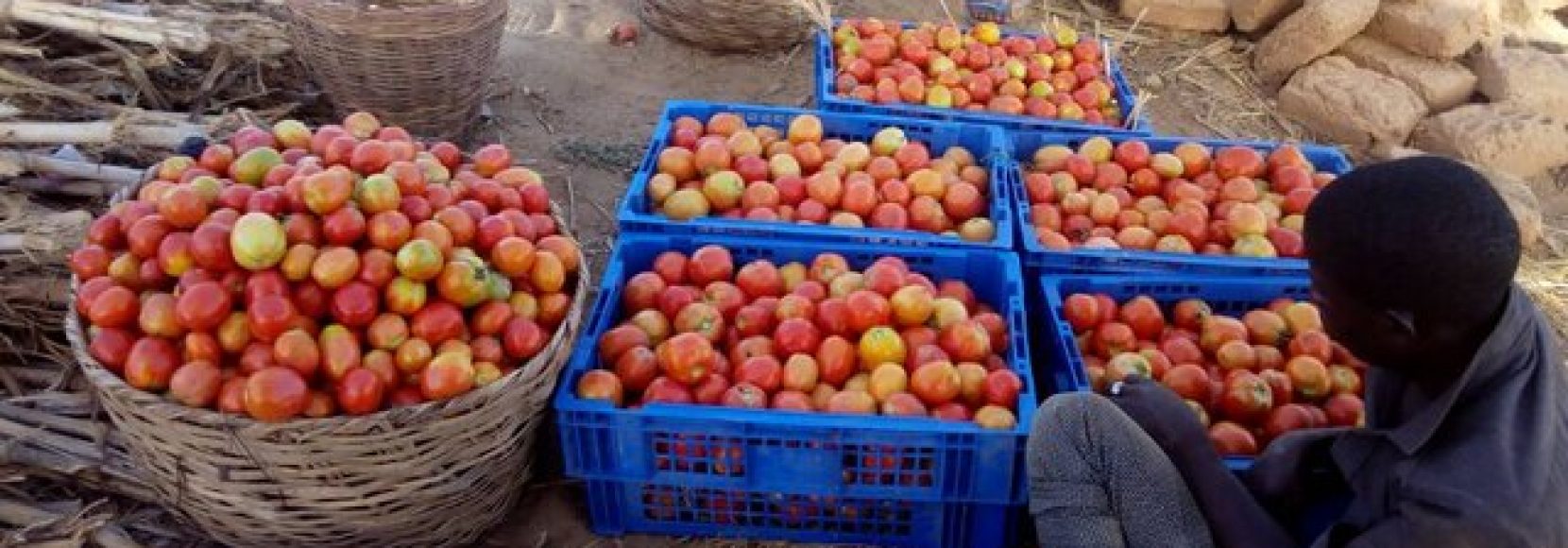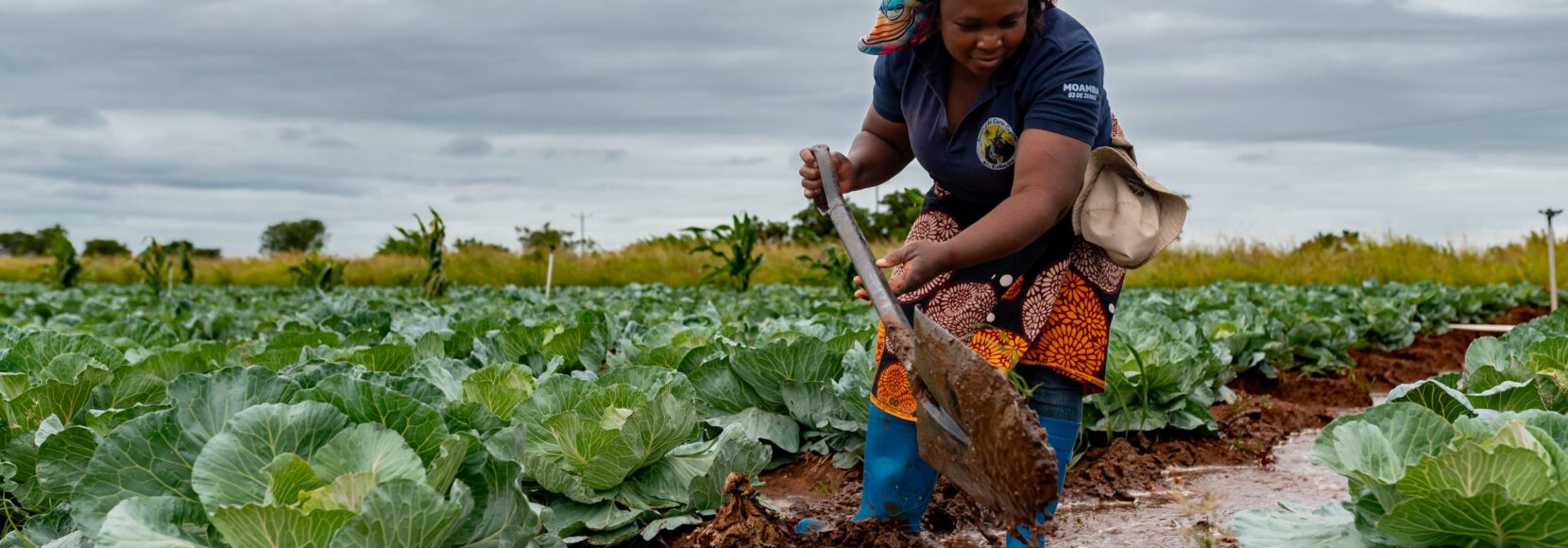
How an Entrepreneur Learned to Grow His Success Following Nigeria’s Tomato Crisis
Tomatoes are a staple for many Nigerian recipes since Nigeria is the second largest producer of fresh tomatoes in Africa. TechnoServe provided training on best practices that help farmers to improve their production, decrease post-harvest losses, and increase their incomes.
When Abdullateef Olaosebikan graduated from the University of Abuja in Nigeria in 2015, he left with an entrepreneurial spirit that continued to grow. While he studied geography and specialized in the information and communications technology sector, he realized there was a problem in a different professional area he wanted to solve.
“I grew up in Kaduna [State] and we usually have this challenge of tomato wastage,” says Abdullateef. “That was how it all started.”
With a desire to solve this problem, in 2015 Abdullateef founded Nafarmfoods, an enterprise created to process and preserve fruits and vegetables such as tomatoes, peppers, and onions. The company does this by converting them into pastes to help combat the issue of its scarcity, extreme cost, and wastage during harvest season.
Why are Tomatoes Important to Nigeria?
It may come as no surprise that tomatoes are a staple for many Nigerian recipes, since Nigeria is the second largest producer of fresh tomatoes in Africa. Globally, the country is the 14th largest tomato producer, with 2.3 million tons produced in 2016. However, due to a range of factors, including inefficient cross-country transport systems and a lack of storage facilities, around 45% of harvested tomatoes go to waste in the country.
Around 45% of harvested tomatoes go to waste in Nigeria.
These challenges in the tomato industry have existed for some time in Nigeria. But few were prepared for the season that would come just a year after Nafarmfoods was founded.
What was the “Tomato Ebola” in Nigeria?
In 2016, a Tuta absoluta moth pest, which attacks tomato plant leaves, began destroying crops in Nigeria. Eighty percent of farms in Kaduna, Nigeria’s largest tomato-producing state, were affected by the insect, which produces larvae that can cause a complete loss in yields. Nicknamed the “Tomato Ebola,” the pest first appeared in March of that year and caused the Nigerian government to declare a state of emergency.
Just a year after its founding, Nafarmfoods encountered this challenge. Compounding the problem was the fact that the company had very few partners to learn from or data to refer to. “In particular, we had this challenge of accessing raw tomatoes,” says Abdullateef. “There was no accurate data, no precise information on sourcing for tomatoes. Meeting TechnoServe actually exposed us to the reality in the field, from farmers, to their farms, to the products, to logistics.”
How a First-Time Entrepreneur Found Help with His Business
Despite the country’s soaring demand for tomatoes and its vast areas of arable land, Nigeria is not self-sufficient in this crop. To help farmers capitalize on this untapped market opportunity, TechnoServe partnered with the Rockefeller Foundation and Syngenta Foundation on the YieldWise program in 2017 to increase the incomes of tomato and rice farmers in Nigeria like Abdullateef. By training them in best agricultural and post-harvest practices and connecting them with the inputs and networks they need to make their farming businesses thrive, the program works to improve smallholder farmers’ livelihoods and reduce food waste.
TechnoServe provided training on best practices that help farmers to improve their production, decrease post-harvest losses, and increase their incomes. The program also amplified the impact of these increased yields by training farmers in business skills, helping them to organize into farmers’ organizations, and facilitating direct market connections with buyers who can pay a premium price for their rice and tomato crops. Over the course of the project, more than 6,600 farmers received training on good agricultural practices, including Abdullateef.
The Results
“One thing I learned through our engagement with TechnoServe was the creation of a kind of market plan for tomato farmers,” he says. “When I saw this information, I was so interested, and we actually converted it into what we call a cluster map. It shows all the communities in Nigeria harvesting tomatoes.”
Abdullateef says that since working with TechnoServe, Nafarmfoods’ staff has gone from six employees working inconsistently to 16 full-time employees. He is one of the 37,566 farmers who benefited from the YieldWise program. It was found that there was a 169% increase in farmers’ annual income from the baseline value of $194 to an average annual income per farmer of $493.
Abdullateef now has big plans to build Nafarmfoods into one of Africa’s leading companies in tomato processing. He is working to adopt global best practices and localize them to develop a scalable, impactful, and sustainable business that improves socioeconomic conditions at the same time. Nafarmfoods is doing this now by conducting women and youth empowerment trainings with cooperatives and community-based organizations. More than 800 women and youths have been impacted.
Today, Abdullateef looks back on the challenges he has overcome, and feels hopeful about the future. “I’m looking forward to a more sustainable livelihood for myself, my family, and the business,” he says.





